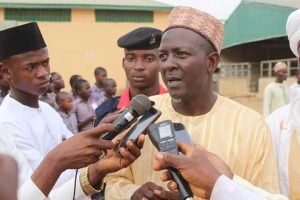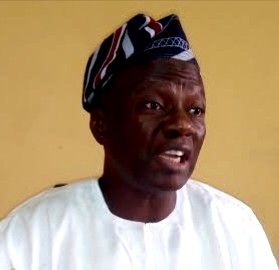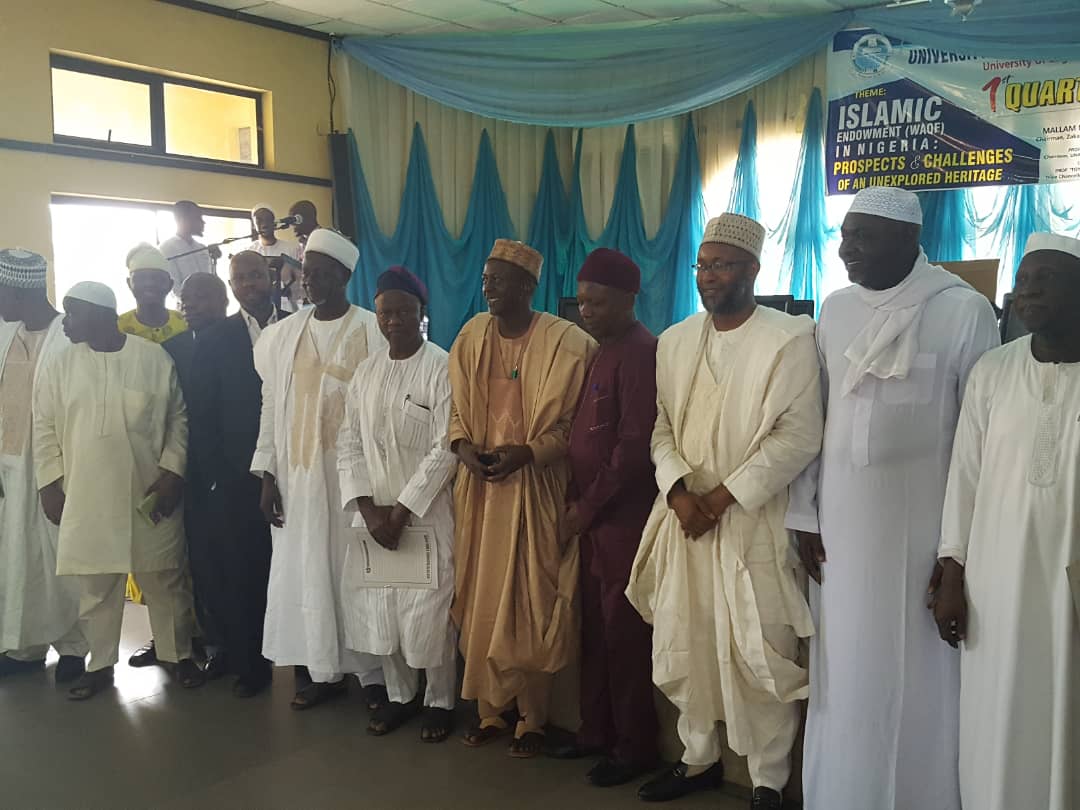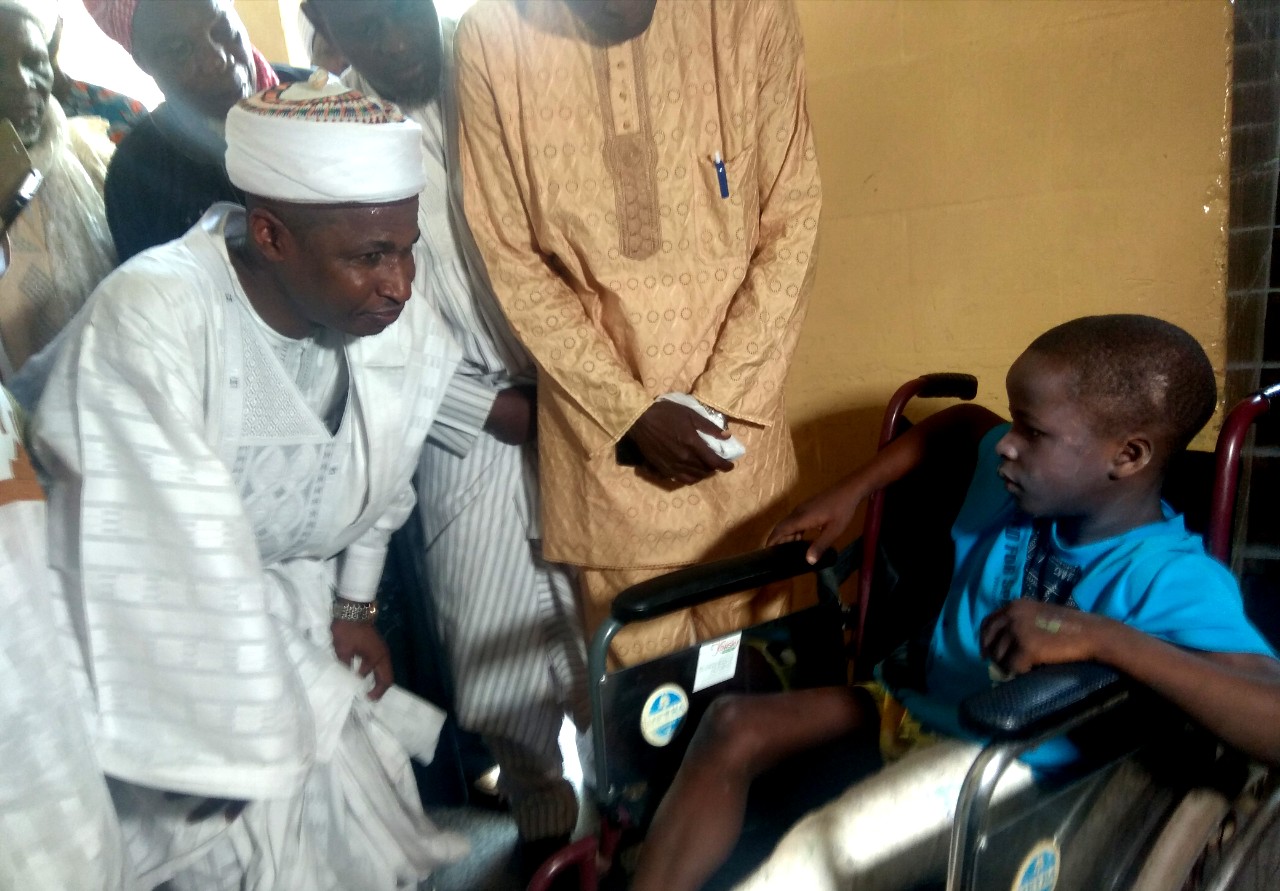Muslim scholars and experts in the field of Islamic endowment (Waqf) have called on government at all levels and Muslim communities particularly in academia to embark on a critical study of the concepts of Waqf and Zakat and apply the principles to the nation’s socio-economic challenges.
The call came on the heels of a maiden Quarterly Public Lecture themed “Islamic Endowment (Waqf) in Nigeria: Challenges and Prospects of an Unexplored Heritage,” which was organised by the University of Lagos Muslim Community (UMC) on Manday.
The Chairman of Zakat and Endowment Committee of Sokoto, Dr. Muhammad Lawal Maidoki and the Secretary and Chairman of Jaiz Zakat and Waqf Trust Foundation, Imam Abdullahi Shuaib, delivered lectures on “Waqf: Challenges and Prospects” and “Waqf: Structures and Operations” respectively.
Maidoki, who noted that the history of Islamic endowment is not different from Islam, said in many societies, waqf-based institutions were the sole providers of education, health care, water resources and support for the poor and even for the welfare of animals without any state intervention.
“Waqf vary in terms of categories which include public, family or combined packages. It’s a kind of package that supports welfare for the poor and vulnerable people. Historicallly, most Waqf are public oriented including non-Muslims.

“Fundamentally, we have Waqf in form of property, corporate and cash. It’s a form of an endowment that people commit as an investment towards a specific welfare and development goals. For property, it could be buildings, hospitals or equipment. The corporate covers shares of companies, Islamic banks and Shariah compliant investment companies. We also have cash waqf which is an original capital dedicated for a cause.”
Explaining the models of the Islamic endowment, he said the models cut across governmental-based – created by federal or a state government, emirate-based, NGO-based and mosque-based platforms.
He argued that the waqf concept is not a religious agenda but an essential instrument of combatting endemic poverty and economic adversities worldwide.
“Waqf has worked perfectly in many countries of the world. It is currently working in Indonesia, Thailand, Sudan, Turkey among others.”
Noting that the Islamic endowment is not a new practice, Maidoki stressed that the initiative has the capacity of increasing sources of revenue to the government.
“Waqf has been in existence for long, but many don’t understand it. It’s not only religious but an initiative that can create wealth for all and sundry and sustain generations. It’s doable. We don’t have any reason to be begging. The waqf initiative can create a value chain. All we need to do is to domestic the World Bank Work Plan on Waqf Operations.
Meanwhile, he has called for the enforcement of waqf laws and the establishment of a National Board of Waqf Administration just as he advised the Muslim majority states to consider waqf in their developmental programmes.
He also called for sustainable collaborations with the international organizations with a view to developing “the infant industry.”
Imam Abdullahi Shuaib in his presentation expressed gratitude that the Nigerian constitution recognised the operation of Waqf.

He said, “Waqf derives legal backing from Sections 262 (1), 272 (2), 39 (1) paragraph 9, 2nd Schedule part 2. Section 41 of the Land Use Act of Nigeria. Impressively, these sections of the constitution also allow for the Sharia Court of Appeal to set up in any state that wishes to. The goal of zakat is not different from Waqf.
Noting that the Islamic endowment is a responsibility of the government, Shuaib said economic meltdown or recession doesn’t affect it provided the sources are not tampered with.
“Waqf is an investment for the future and accumulation of productive wealth that benefits the future generations. One of the challenges is that some governments have the legal backing but they fail to enforce it,” he said.
But, going forward, he said there is a need for the establishment of Waqf Management Committees at various levels in Nigeria to handle the administration of waqf.
“The work of the board is essential to monitor regulations and the committee should be allowed to run only a single term. But, the board can renew their mandate based on performance,” Shuaib said.
The Chairman, UMC, Prof Lai Olurode stated that the discourse was inspired by the practical deficit of zakat and waqf operations in Nigeria.

He said, “This part of the world, we are ignorant (of zakat particularly). The theory is there, but the practice is in deficit. There’s no way to sustain zakat as a key tenet of Islam other than to practise it. Muslims are rich but we very poor. That’s a paradox.
“We are here to see how we can reconcile our irony of rich but poor. We want to take action on how to invest in education, tackle endemic poverty and bridge the gap between waqf and zakat deficit.”
A former Chief Imam of UNILAG, Prof Murtala Bidmus stressed that it was about time Muslims began to work out the actionable plan that will yield meaningful transformation in the next two decades.



